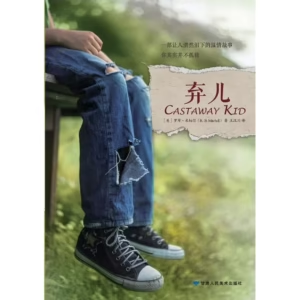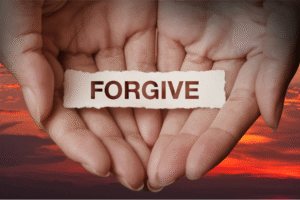Forgiveness Brings Relief
Second of two parts (Read the 1st Part)
 Forgiveness. It is needed in oft-fractured parent-child relationships. A 2022 study led by a sociology professor found that 26% of adult children were estranged from their father and 6% from their mother.
Forgiveness. It is needed in oft-fractured parent-child relationships. A 2022 study led by a sociology professor found that 26% of adult children were estranged from their father and 6% from their mother.
In Rob Mitchell’s case, it was both. As he details in Castaway Kid, a painful task after deciding to follow Christ was forgiving the three people who had wounded him: his mother, father, and paternal grandmother.
As I mentioned in my last blog, Rob had reasons for resentment:
- His mother regularly blew in and out of his life, treating him to fancy getaways, only to shuttle him back to the orphanage and disappear again for months.
- His father left him fatherless after putting a gun to his head and only partially wounding himself. Dad would spend the rest of his life in a mental institution.
- His paternal grandmother never permanently welcomed him into her affluent surroundings in Atlanta. After Rob’s summertime visits, she invariably sent him back to the orphanage.
Releasing Resentment
Rob devotes three chapters to the topic of forgiveness. In a powerful story about Holocaust survivor Corrie ten Boom, he tells of her forgiving a former Nazi guard from the prison where she spent much of World War II.
Ten Boom told of realizing she needed to obey God’s command to forgive. Then she asked the audience: Who do you need to forgive?
Rob writes that he knew God wanted him to follow this example “but I didn’t want to do it. Crawling through the jungle among poisonous snakes and army ants seemed more inviting.”
Indeed, he goes on to describe wrestling with God in the days following the realization. He argues it wouldn’t make a difference, since by then two of the people concerned were dead and his mother might as well have been.
As the conflict continued, he fumed, “I don’t think I’m capable of forgiving them! Just the attempt seems overwhelming. Are You sure I’ve got the brains and strength to even try to forgive any of these three? You aren’t serious about this stuff, are You?”
Actually, God was. Right after that question, Rob sensed one word entering his mind; it didn’t come from him: “Begin.”
Working Through the List
 He goes on to relate how he started with the easiest person to forgive: his grandmother. As he meditated on her circumstances, he realized that much of what he saw as neglect was his grandmother’s attempts to avoid unpleasantness. Her actions weren’t malicious, but self-protective.
He goes on to relate how he started with the easiest person to forgive: his grandmother. As he meditated on her circumstances, he realized that much of what he saw as neglect was his grandmother’s attempts to avoid unpleasantness. Her actions weren’t malicious, but self-protective.
Rob then reveals how his father was caught between two strong-willed women, on top of a high-pressure job in advertising. Add to that Rob’s mother’s neglect; Rob’s father would often come home to find his son alone in his crib. Dad finally sought solace in alcohol. When that didn’t help, he tried to end it all.
Though that didn’t relieve his father of responsibility for his actions, Rob realized he had to forgive him, too.
That left his mother: “Trying to understand Mother was like descending into a Salvador Dali painting shrouded in a Kafkaesque nightmare.”
It’s easy to see why from one stomach-turning incident: her showing up drunk for his junior high school graduation. There was much more for Rob to come to terms with and release, but it wound up with forgiving her too.
The Bottom Line
As Rob teaches, true forgiveness isn’t:
-
- Denying what happened
- Excusing what happened
- Justifying what happened
- Ignoring what happened
True forgiveness, he says, is releasing our anger and rage and rising above the pain in order to become the person God imagines we can become.
“Having chosen not to be a victim crippled by childhood trauma, I felt free—as if heavy chains had been removed from my legs,” Rob concludes. “I was free to move wherever the river of life might take me.”
Jumping into the river of forgiveness will bring freedom and relief.



